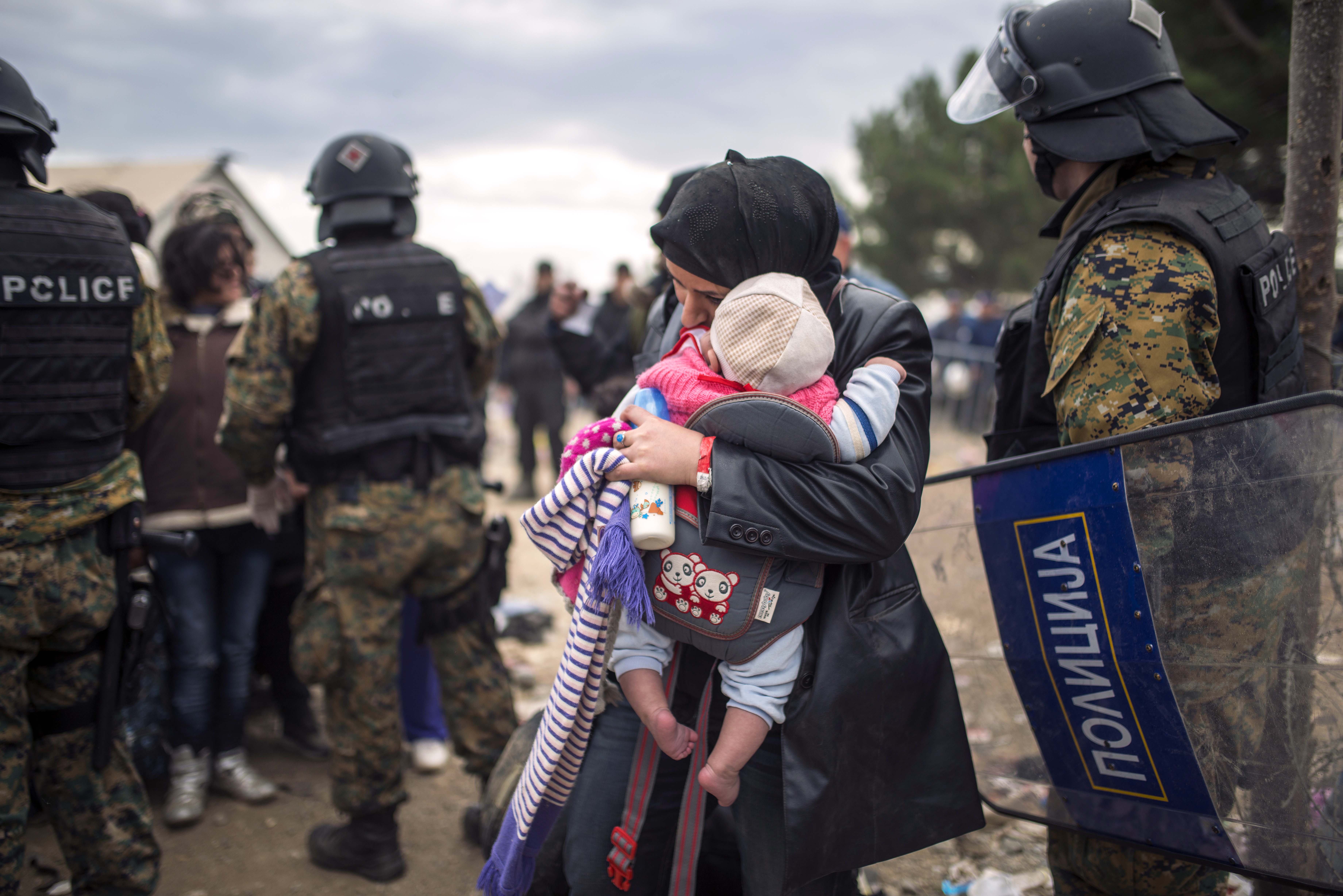Refugee-emergency
After the events in Paris, with the anti-terrorism Resolutions that abolish Schengen and the free movement of people, thereby multiplying controls, a Europe turned into a “fortress” is likely to become even more so, letting off tensions and fears upon those who most need help and hospitality: the refugees

After Paris and the lockdown of Europe’s internal and external borders, what will be the impact on the serious humanitarian crisis of refugees? Hundreds of thousands of people knocking at our doors have not suddenly disappeared because they are no longer spoken of. The majority escapes from the same dangers that we are afraid of: terrorism and bombs. It seems an absurd paradox, and yet with the anti-terrorism resolutions that abolish Schengen and the free movement of people, multiplying controls, a Europe turned into a “fortress” is likely to become even more so, letting off tensions and fears upon those who most need help and hospitality: the refugees. Without realizing that those who are desperate will change their way and seek all means for survival. According to data from the UNHCR (United Nations High Commissioner for Refugees), in 2015 836thousand people arrived by sea, especially through the “Balkan route”. About 3,500 have died in the Mediterranean.
Walls on Eastern borders. Something is already changing if in the past days the United Nations has detected signs of “national segregation” in the Balkan Countries, the most reluctant to reception. Thousands of people from Pakistan, Sri Lanka, Morocco, Liberia and the Democratic Republic of Congo are blocked at the borders of Greece, Croatia and Serbia. Only Syrians, Afghans, Iraqis and Palestinians are allowed. After the 175 km wall between Hungary and Serbia, the 30 km wall between Bulgaria and Turkey (to which should be added another 130 km) and 10.5 km between Greece and Turkey, now the Republic of Macedonia has announced the construction of a 1.5 km enclosure on the border with Greece, on the banks of the River Axios. “After the massacres in Paris East European Countries are even more determined, – denounce Amnesty International and Human Rights Watch – they oppose the European refugee resettlement plan more than before.”
A European plan that already failed. Such opposition could become counterproductive. In fact, only efficient management and control of migration flows, coupled by resettlement across Europe, would simultaneously ensure security and the respect of human rights. Conversely, more problems risk arising now, since the “hotspots” envisaged in ports (5 in Sicily and 1 in the Apulia) are not fully operative, very few people have been resettled (66 in Italy), new arrivals try to bypass the Dublin system and avoid being registered upon arrival, creating a plethora of irregularities that could be used by any terrorist – although it is highly unlikely that those who are funded by ISIS would face all the risks of the “journeys of hope”. In practice, Europe’s refugee resettlement plan has already failed: Britain presides the Eurotunnel and massively monitors its borders, Austria has changed the rules for asylum seekers (which will be temporary and will last only 3 years), Germany has second thoughts on the reception of Syrians, Slovenia built a barbed wire barrier on its border with Croatia. France’s latest demands are likely to make things worse.
Caritas, concerns for unjustified lockdown. “We are concerned about certain Countries’ behaviour in terms of border closing, unjustifiable compared to what is happening”, said Oliviero Forti, head of immigration of Caritas Italy. Caritas centres active along the “Balkan route” must know what kind of response should be given in such a difficult time. “What is happening – he noted – risks diverting resources and attention from other major problems that need to be addressed.” “It’s the typical gut reaction dictated by fear – he said -. But it has nothing to do with politics, since it ignores historical developments, millions of people wishing to enter our Countries.” Moreover, “as we all know the terrorists were French citizens. The fact that they were foreign-born makes no difference. We must get used to a multiethnic society, for the good and for the bad. Anyone could fall into the trap of terrorism: it means that something went wrong. An examination of conscience would be worth the while.”
“Unexpected opening” of Italian parishes. After the attacks in Paris, Caritas Italy registered a dramatic increase in requests by parishes and families to host the refugees. This week it will relaunch the project: “A refugee in my home.” Initially conceived for hospitality to 200 people, it reached 700 a month ago. “We expected a slowdown, instead, the numbers are growing. This signals a misalignment between the political and media debate and people’s perception: the latter are surely afraid, but they don’t link that fear to the ‘refugee’ question, despite some attempts to mix the two things together.